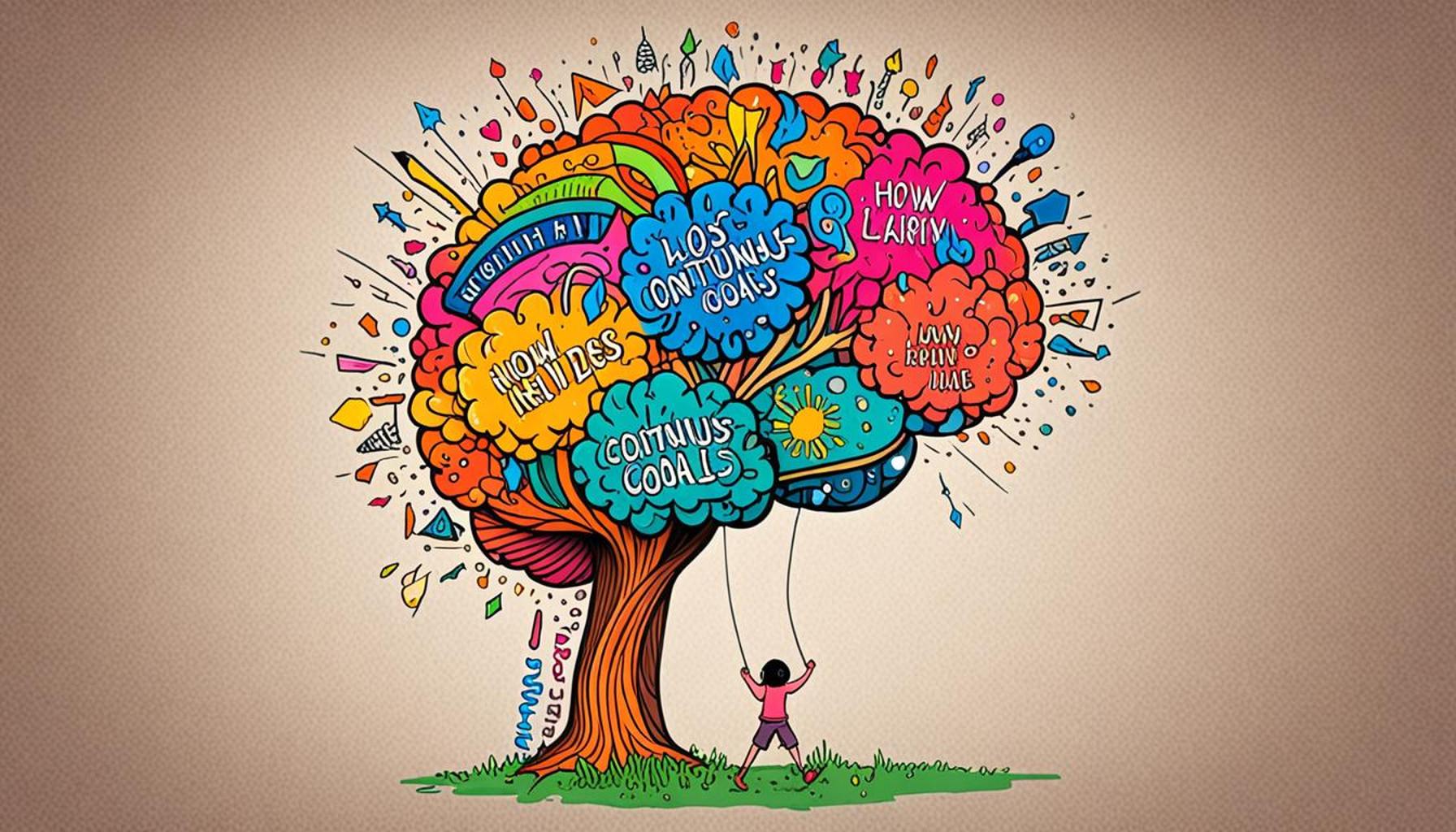The Importance of Setting SMART Goals in Developing a Growth Mindset

Unlocking Potential Through SMART Goals
Setting goals plays an essential role in personal and professional growth, particularly in countries brimming with opportunities like Nigeria. Goal setting is not merely the act of expressing aspirations; it serves as a roadmap for individuals eager to embark on journeys of self-discovery, achievement, and success. Understanding the principles behind effective goal-setting can enable individuals to transform dreams into reality, thereby redefining the trajectory of their lives.
What are SMART Goals?
The SMART framework is a systematic approach to goal-setting that can be a game changer for anyone ready to make significant strides in their life. The acronym stands for:
- Specific: Goals should be clear and well-defined. For instance, rather than vaguely stating, “I want to save money,” a more specific goal would be, “I will save 50,000 Naira a month for six months.”
- Measurable: There should be criteria for tracking progress. This could mean, “I will track my savings weekly against my target to ensure I stay on track.”
- Achievable: Goals must be realistic. If you declare, “I will save 1 million Naira in one month,” but your current income does not support that, you may be setting yourself up for failure.
- Relevant: Make sure the goal pertains to your personal aspirations and values. If personal financial growth is your priority, then setting a goal related to saving would be pertinent.
- Time-bound: Deadlines are essential. An effective time-bound goal could be, “I will complete this savings plan by the end of the year.”
By employing the SMART criteria, individuals unlock a mindset that thrives on clarity and tangible results. For example, instead of saying, “I aspire to become a leading professional,” a SMART goal would be, “I will complete an online certification in digital marketing by December 2023.” This kind of specification not only fosters commitment but also provides a clear framework for evaluating progress.
The Role of a Growth Mindset
Integrating a growth mindset with SMART goals enables an individual to develop resilience, especially when faced with challenges. This mindset encourages individuals—from students to professionals—to regard setbacks not as failures but as valuable learning opportunities. For instance, after receiving constructive feedback on a project, someone with a growth mindset might embrace the critiques to enhance future performance rather than feeling discouraged.
Furthermore, achieving well-defined SMART goals can inspire peers and contribute to collective growth. When one person shares their accomplishments—be it finishing a degree or attaining a professional milestone—they motivate others to pursue their aspirations. In a country like Nigeria, where networking and collaborative efforts are crucial, this ripple effect can lead to a community driven by innovation and resilience.

As Nigeria continues to develop, the ability to set SMART goals paired with a growth mindset may be the key to unlocking the full potential of its citizens, creating avenues for success that resonate well beyond individual achievements.
RECOMMENDED: Check out this similar article
Harnessing the Smart Way to Grow
To comprehend the significance of setting SMART goals within the context of fostering a growth mindset, it is essential to delve deeper into the distinct advantages that this framework offers. In essence, SMART goals facilitate a structured path toward growth, enhancing an individual’s ability to learn, adapt, and achieve amidst life’s myriad challenges.
The Connection Between SMART Goals and Growth Mindset
At the core of a growth mindset is the belief that abilities and intelligence can be developed through dedication and hard work. When individuals couple this mindset with the SMART framework, they create a powerful synergy that amplifies their potential for growth. Here are a few ways that SMART goals can support the cultivation of a growth mindset:
- Clarity and Focus: Having goals that are specific allows individuals to narrow their focus. For instance, a university student in Nigeria might set a specific goal of “attaining a 3.5 GPA by the end of the semester.” This clear target helps the student concentrate their efforts effectively, enhancing their learning process.
- Accountability through Measurement: The measurable aspect of SMART goals introduces accountability. For example, a small business owner aiming to increase sales could quantify their goal as “boosting monthly sales by 20% over the next six months.” This measurement means a set of metrics can be employed to evaluate success, creating a feedback loop for continuous improvement.
- Realistic Challenges: Setting achievable goals motivates individuals to push their limits while ensuring they remain approachable. For instance, a recent graduate might aim to secure an internship within three months of graduation, a realistic step that builds professional experience without overwhelming pressure.
- Alignment with Personal Values: The relevance aspect ensures that goals resonate on a personal level. A young entrepreneur in Nigeria who is passionate about sustainability might set a goal of launching a green initiative that also enhances their community. This connection keeps motivation high and ensures that efforts feel meaningful.
- Timeliness Encouraging Action: Having a deadline instills urgency, prompting action. A university student might aim to publish a research paper by June, pushing them to consistently work toward achieving that target, overcoming procrastination, and cementing a proactive approach.
By integrating SMART goals with a growth mindset, individuals in Nigeria and around the world can cultivate resilience amidst challenges, recognizing that struggles can lead to valuable learning experiences. This transformational approach poses an invitation for everyone to step outside their comfort zones, embracing opportunities for development in both their personal and professional lives.
Furthermore, as individuals achieve their SMART goals, they reinforce their growth mindset, creating a self-perpetuating cycle of ambition and accomplishment. Each milestone reached becomes a stepping stone to the next, demonstrating that with determination and well-defined objectives, the possibilities for growth are boundless.
| Advantage | Description |
|---|---|
| Clarity | SMART goals provide clear direction, allowing individuals to focus their efforts on specific outcomes rather than vague ambitions. |
| Motivation | By setting achievable goals, individuals foster a sense of accomplishment which fuels further motivation and perseverance in achieving more challenging objectives. |
| Measure Progress | SMART goals enable tracking of progress, providing tangible markers for success which enhance accountability and a growth mindset. |
| Skill Development | Setting SMART goals encourages the acquisition and refinement of skills, opening avenues for continuous learning and personal development. |
Setting SMART goals is crucial in the journey of cultivating a growth mindset. The specific nature of these goals enables individuals to channel their energy and resources effectively, ensuring they are not lost in ambiguity or distractions. Furthermore, the motivation derived from setting and achieving these goals fosters resilience, as every small victory reinforces the belief that effort leads to improvement. Moreover, by enabling individuals to measure progress concretely, SMART goals create a supportive environment for ongoing growth. Each milestone not only celebrates achievements but also illuminates areas needing further attention, essential for the continuous evolution of one’s capabilities. Embracing this structured approach encourages fruitful learning, challenging the limits of what one believes to be possible, and establishing a robust framework for success.
YOU MAY ALSO LIKE: Read read another article
Navigating Challenges through SMART Goal Setting
Setting SMART goals not only facilitates individual growth but also equips individuals with the ability to navigate through challenges effectively. In Nigeria, where socio-economic conditions can often be unpredictable, harnessing the power of SMART goals can bolster an individual’s resilience, making it easier to adapt to changing circumstances and develop a robust growth mindset.
Cultivating Resilience Through Failure
One of the pivotal components of a growth mindset is the acceptance of failure as a stepping stone rather than a setback. When individuals embrace this philosophy, SMART goals become vital tools in providing structure and guidance through their journey. For instance, students preparing for the Unified Tertiary Matriculation Examination (UTME) might set a specific goal of “completing three past question papers each week for the next month.” When they encounter difficulties or fail to achieve a target score initially, these challenges can be viewed through the lens of their goals, encouraging them to learn from their mistakes and adjust their strategies.
This is where the measurable aspect of SMART goals proves essential. By tracking their progress, students can identify areas of weakness and pivot their study methods accordingly. Such an iterative process not only reinforces a growth mindset but also helps develop resilience, enabling students to rebound from academic disappointments with renewed determination.
Encouraging Lifelong Learning
SMART goals inherently promote continuous learning, a core principle of a growth mindset. Setting time-bound goals encourages individuals to engage in ongoing education and skill acquisition. For example, a young professional in Nigeria might set a goal to “complete a digital marketing course within three months to enhance employability.” This approach not only positions them for immediate success but also instills a habit of self-improvement and continuous development.
In an ever-evolving job market, possessing a growth mindset can be a game changer. It empowers individuals to embrace new technologies and methodologies, ensuring they remain relevant in their respective fields. SMART goal setting creates a framework for assessing the new skills learned, building upon past achievements, and modifying targets based on current educational trends.
Building a Supportive Environment
Moreover, the collaborative nature of many SMART goals fosters an environment of support and shared growth. In communities across Nigeria, partnering with others can multiply the benefits of goal setting. For instance, a group of aspiring entrepreneurs may set a collective goal of “launching a joint online marketplace within six months.” This not only brings individuals together to share resources and knowledge but also creates networks that reinforce the growth mindset.
- Shared Accountability: Working alongside others creates a mutual accountability system where individuals motivate each other, keeping spirits high and intention focused.
- Collective Learning: Group interactions lead to diverse perspectives, enhancing problem-solving capabilities and sparking innovative ideas.
- Emotional Resilience: In challenging times, relying on a supportive network can ease feelings of isolation, promoting mental and emotional well-being.
Equipped with SMART goals and grounded in a growth mindset, individuals can cultivate an unwavering spirit that not only celebrates successes but also navigates through failures with grace. This combination often leads to transformative outcomes, further underlining the importance of establishing SMART goals in personal and professional development within Nigeria’s dynamic landscape.
LEARN MORE: This related article may interest you
Conclusion
In essence, setting SMART goals is not merely an exercise in planning but a fundamental strategy for fostering a growth mindset. Whether navigating the complexities of the Nigerian educational system or the unpredictable nature of the job market, the clarity provided by SMART goals allows individuals to break down their aspirations into actionable steps. This approach reinforces the understanding that growth is a continuous process marked by learning, adaptation, and resilience.
Moreover, by viewing failures as opportunities for improvement, individuals can engage in a cycle of reflection and recalibration. This aligns perfectly with the core tenets of the growth mindset, which hinges on the idea that intelligence and abilities can be developed through effort and perseverance. As such, SMART goal setting encourages not only personal accountability but also collaboration and community support, vital in a collective society like Nigeria where shared experiences can lead to mutual growth.
Ultimately, the commitment to SMART goal setting equips individuals with the tools necessary to thrive in a world that is constantly changing. As we embrace the principles of specificity, measurability, achievability, relevance, and time-bound tasks, we open doors to endless possibilities, fostering a culture that prioritizes lifelong learning and resilience. In celebrating both our achievements and the lessons learned from setbacks, we can pave the way for a brighter, more dynamic future fueled by a profound growth mindset.


